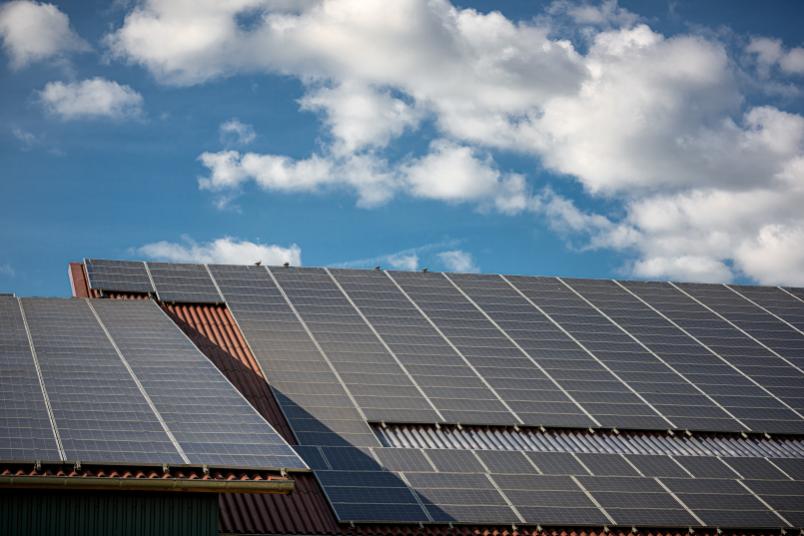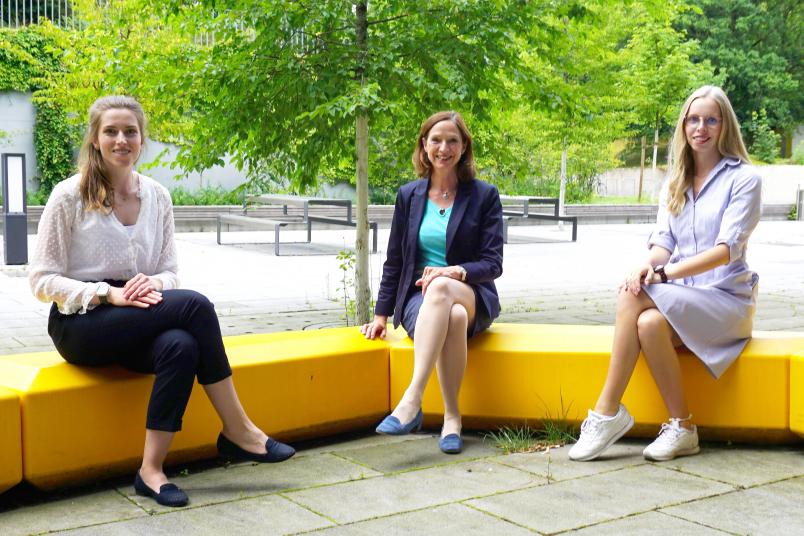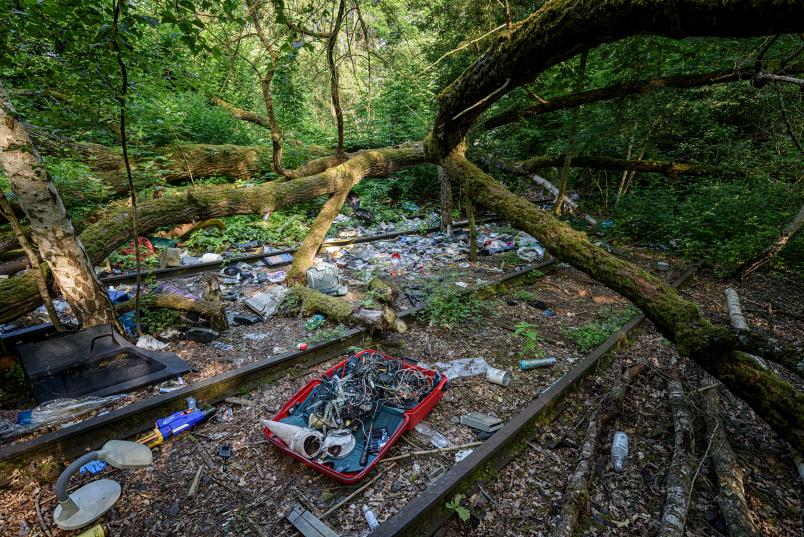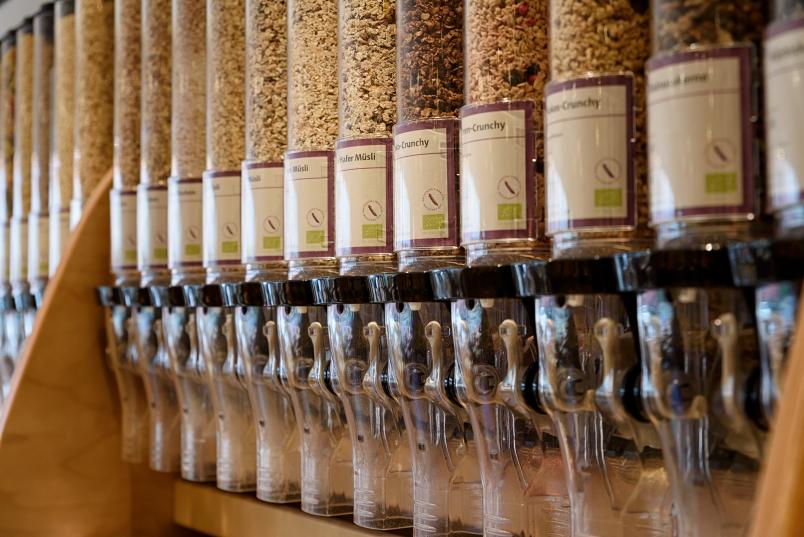
Management and Economics
Manufacturing without neglecting the environment
An economic system that is only designed for output without considering the environment is no longer appropriate today. RUB researchers are developing concepts for a sustainable circular economy.
To assess the performance of a company, you basically only need two things: input and output. You can compare the manpower and materials that flow into the production process and the products that come out at the end. However, other factors also play a role in assessing a company, such as the environmental impact resulting from the production process. The team led by Professor Marion Steven from the RUB Chair of Production Management is interested in such factors. The researchers are developing concepts for sustainable patterns of production and consumption.
Sustainable Development Goals
“I concerned myself with production and environmental protection even during my post-doctoral degree from 1989 onwards,” remembers Marion Steven. “However, in the beginning, I couldn’t quite place the topic in my faculties.” The Fukushima nuclear catastrophe in 2011 gave the researcher the crucial motivation to push the topic forward. “At the time, I thought, ‘I have to contribute something,’ so I created a lecture on environmental management,” says the researcher.
Incorporating environmental impact into the productivity index
Sustainability is now an area of focus within her chair, with Verena Aufderheide, for instance, looking at how a company’s productivity can be measured while also taking environmental aspects into account as part of her doctorate. The economic performance of a company can be assessed using the established productivity index, yet it does not take into account the ecological and social effects of the activities. A company that has a severe impact on the environment but produces a great deal can thus achieve good key figures. “Things can’t continue this way,” says Verena Aufderheide. “We want to place a greater focus on environmental impact.”

In her doctoral work, the researcher, who has a background in both mathematics and economics, is developing the so-called Green Productivity Index. This makes it possible to compensate for the generated environmental pollution using measures that protect the environment, such as recycling. Productivity and environmental impacts can also be weighted in the new formula using a factor. A company can thus decide what it wants to focus on. Verena Aufderheide is currently working on integrating social components into the Green Productivity Index. “However, social aspects are much more difficult to depict in a formula, as they are not easy to measure, unlike emissions or waste production,” she says, describing the challenge.
“My desired outcome would be that companies will eventually use the Green Productivity Index for their sustainability reporting,” says the researcher. “A company can use the index, for instance, to calculate whether certain measures make it more sustainable over time.” Comparisons between companies in an industry would also be conceivable.
Circular economy for greater sustainability
The current keyword “circular economy” represents a key to greater sustainability both for production and for consumption. “We are looking into the question of how we can go from traditional, linear value creation chains to a circular ecosystem in which various partners create value together,” describes Laura Montag, also a doctoral researcher at the Chair of Production Management. The aim of such a system is to use, reuse, repair or recycle materials and products for as long as possible to keep the environmental impact low. Ideally, a system of this kind does not produce any waste at all. Together with Verena Aufderheide, Laura Montag has developed a concept for such an ecosystem using the example of photovoltaics.
“Photovoltaic systems have an average service life of 30 years,” explains Laura Montag. “By 2030, eight million tonnes of waste will be generated from defective cells.” What happens at the end of a product’s life is often not considered at the beginning – a problem for sustainability.
Exploiting the potential of photovoltaics
In relation to the photovoltaic systems, the researchers have identified three barriers that currently prevent the potential of the photovoltaic systems from being exploited: financial, technological and ecological. When people are interested in purchasing a solar energy system, they are initially faced with high investment costs. This can deter them from making what is actually a sensible purchase. “Those wanting to buy a photovoltaic cell also need to get to grips with many technical aspects – as people want to choose the right product from the many options available. It is, after all, an expensive purchase for many years,” explains Laura Montag. Added to that are the problems already described, which occur later on during disposal or possible repairs and also require special expertise.

The researchers’ ecosystem therefore does not envisage that customers will purchase their own solar cells at all. Instead, they hire the products. This saves them from incurring any investment costs, and the expertise can be consolidated at a corresponding company. In their concept, the researchers list all of the actors and services required for a circular photovoltaic system, from the manufacturer to the operator, right through to the consumer and disposal company. The concept also incorporates industry 4.0 approaches, such as an app allowing the condition of the photovoltaic system to be checked. After all, digital systems can help to better coordinate the entire process.
Bringing sustainability and digitalisation together
The merging of digitalisation and sustainability is a major topic that the researchers at the Chair of Production Management are currently investigating. “There is a trend towards dematerialisation,” says the head of the chair, Marion Steven. “The importance of the product is decreasing, with a greater focus being placed on service.” It is a case of eliminating unnecessary material goods in the interest of sustainability. The aim is what are known as smart sustainable service systems, combining digitalisation, services and sustainability. Verena Aufderheide wants to demonstrate what this means using the example of universities. To do this, a new project is being launched in 2021 in which she is looking to discover in which areas smart concepts are useful and how they can help universities achieve greater sustainability.
